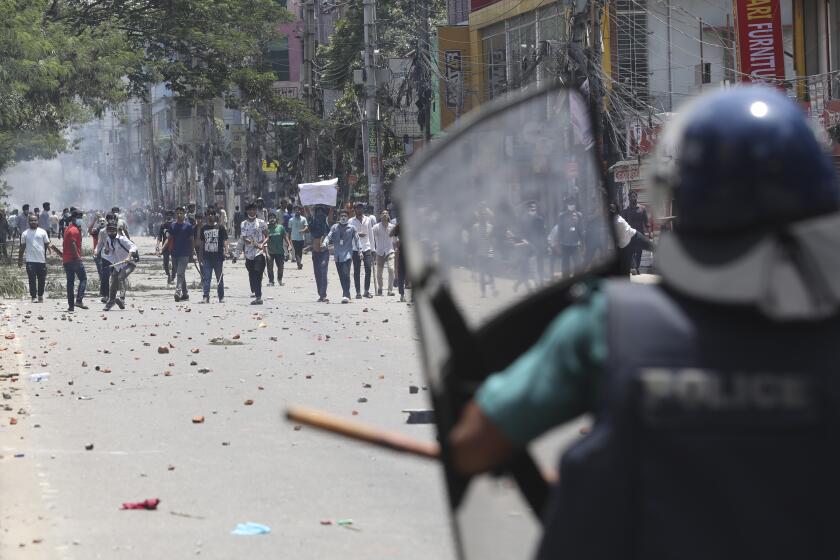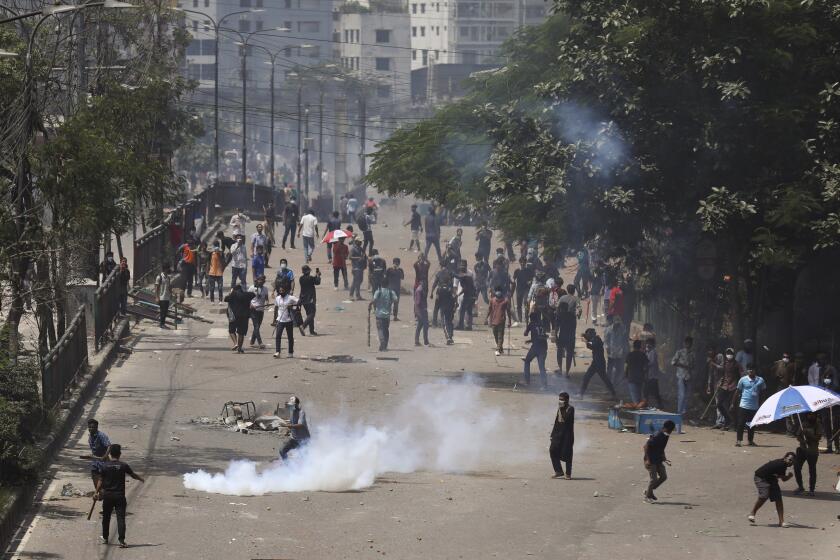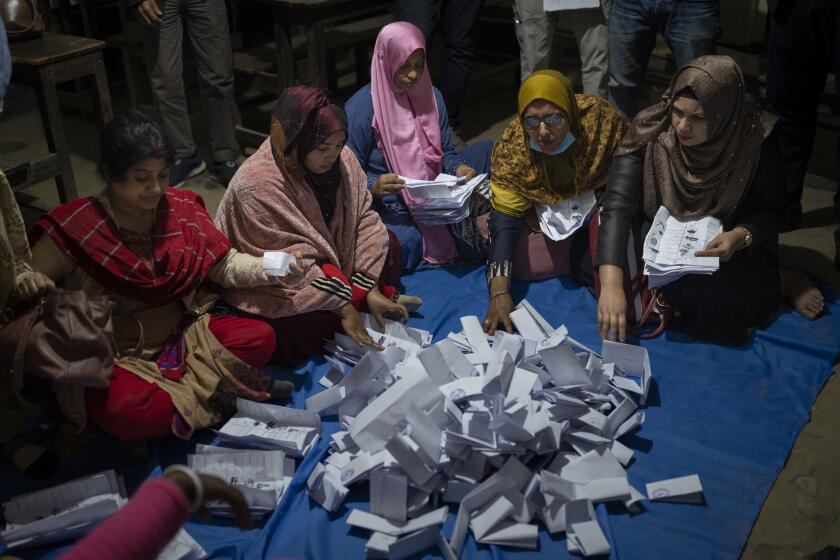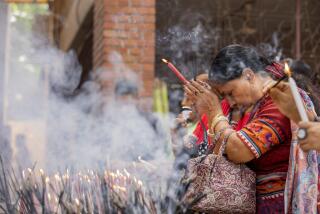Bangladesh mourns some 200 deaths as student protests wind down and thousands are arrested

- Share via
DHAKA, Bangladesh — Bangladesh observed a day of mourning Tuesday in memory of more than 200 people killed in recent weeks during violence that evolved from student protests over the South Asian country’s quota system for government jobs.
After weeks of peaceful protests by students looking to change the system — which reserved 30% of government jobs for relatives of veterans and those who were raped during the war of independence against Pakistan in 1971 — violence erupted July 15 when activists of a student wing of the ruling party attacked demonstrators. Security officials opened fire, using tear gas and rubber bullets to try to quell the violence.
The quota protests posed the most serious challenge to Bangladesh’s government since Prime Minister Sheikh Hasina won a fourth consecutive term in January elections that the main opposition groups boycotted. The ruling Awami League party and opposition Bangladesh Nationalist Party have often accused each other of fueling political chaos and violence, most recently ahead of the country’s national election, which was marred by a crackdown on several opposition figures.
Police imposed a strict curfew in Bangladesh as military forces patrolled the capital after scores were killed during protests over civil service jobs.
Government officials — including those at the Bangladesh Secretariat, the top office containing most of the country’s ministers and bureaucrats — wore black badges Tuesday to mourn those killed as the country crawls back to normalcy with a strict curfew being relaxed in recent days. Authorities also asked all mosques, temples and other religious installations to organize special prayers Tuesday for the dead.
Home Minister Asaduzzaman Khan put the overall death toll at 150, while the country’s leading Bengali-language daily, Prothom Alo, said 211 people have been killed since July 16. Thousands of others have been injured.
Media reports said about 10,000 people have been arrested over the last two weeks in relation to clashes at protests and other attacks on state properties. Rights groups have called for an end to arbitrary arrests, and critics accused the government of using excessive force to tamp down the fighting.
The protests posed the most serious challenge to Bangladesh’s government since Prime Minister Sheikh Hasina won a fourth consecutive term in January.
“The mass arrest and arbitrary detention of student protesters is a witch hunt by the authorities to silence anyone who dares to challenge the government and is a tool to further perpetuate a climate of fear,” Smriti Singh, regional director for South Asia at Amnesty International, said in a statement Monday. “Reports suggest that these arrests are entirely politically motivated, in retaliation for the exercise of human rights.”
The government has defended its position, saying that the arrests were being made on specific charges.
Six of the protest coordinators being held in custody by the Detective Branch of the Dhaka Metropolitan Police released a statement calling off the protests, but other demonstrators rejected the video statement, claiming it was coerced. They say they will protest until all nine of their demands are met, including a public apology from Hasina.
Prime Minister Sheikh Hasina Wajed’s Awami League wins an overwhelming majority in Bangladesh’s parliamentary election after a campaign fraught with violence.
Protesters said the 30% quota was discriminatory and benefited supporters of Hasina, whose Awami League party led the independence movement, and wanted it replaced by a merit-based system.
On July 21, the Supreme Court ordered that the 1971 war veterans’ quota be cut to 5%. Of the remainder, 93% of civil service jobs would be merit-based, while the remaining 2% would be reserved for members of ethnic minorities, transgender people and those with disabilities. Two days later, the government accepted the ruling and pledged to execute the decision.
Both broadband and mobile data services were restored Tuesday after a days-long internet blackout, but social media platforms, including Facebook, remained blocked. Banks and offices opened under a relaxed curfew. Schools and other educational institutions were closed with no opening date yet set as police continued to grapple with protesters.
Alam writes for the Associated Press.
More to Read
Sign up for Essential California
The most important California stories and recommendations in your inbox every morning.
You may occasionally receive promotional content from the Los Angeles Times.
















